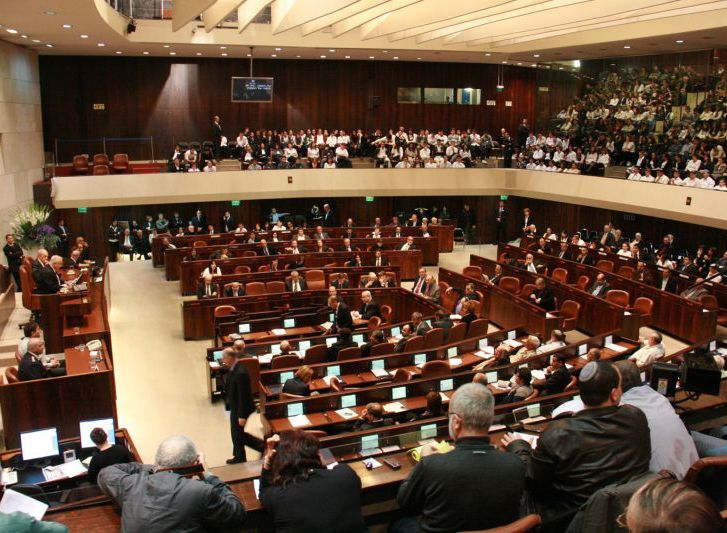Bill curtailing detainees' rights must be withdrawn
In a letter to MK David Rotem, the Chairman of the Knesset's Constitution, Law and Justice Committee, dated 21 October 2010, Adalah demanded that a new bill, which amends the Criminal Procedure Law, should be rejected as it will further harm the constitutional rights of detainees suspected of security offenses.
The bill entitled, "Criminal Procedure Law (Suspects of Security Offenses) (Temporary Order) (Amendment No. 2) – 2010," is designed to extend the validity of special procedures that apply only to detention proceedings of those suspected of security offenses, and to anchor in law further new harsh procedures regarding these suspects. The Committee discussed the bill on 25 October 2010.
The special procedures, as noted above, allow law enforcement authorities to delay the bringing of a detainee suspected of security offenses before a judge for up to 96 hours after the arrest (instead of a maximum of 48 hours for any other detainee). It also allows the courts to extend the detention of a security suspect for up to 20 days each time (instead of 15 days for other detainees) and to hold extension of detention hearings in the absence of the detainee.
Adalah Attorney Abeer Baker stated in the letter that a detainee suspected of committing a security offense possesses every constitutional right that any other suspect is entitled to under law. Nevertheless, the Temporary Order added to the Criminal Procedure Law in 2006 set special procedures for security suspects. Therefore the new bill "is contrary to goals of the criminal law and paves the way toward the creation of two criminal law systems, based on illegal principles, severe segregation and harsh discrimination, especially against the Palestinians."
Under certain conditions, the bill will enable courts to hold detention hearings without the presence of the detainee. Adalah's position is that holding extension of detention and any other hearings outside the presence of the detainee, when added to a prohibition on the detainee's ability to meet with his lawyers, will endanger effective judicial review of his detention. "One cannot accept any possibility, which condones a procedure regarding the detention of a person in his absence. This violates a suspect's right for due process and freedom [from arbitrary arrest]," the letter states.
On 11 February 2010, an expanded nine-justice panel of the Israeli Supreme Court struck down article 5 of the Criminal Procedure (Detainees Suspected of Security Offences) (Temporary Order) Law – 2006, which stipulated that “security suspects” could have their pre-trial detention extended in their absence and thus without their knowledge and without the opportunity to defend themselves. The ruling was issued on an appeal submitted by the Israeli Public Defenders' Office in 2007 on behalf of a detainee following a decision by the lower courts to extend his detention in his absence. Three human rights organizations – Adalah, the Association for Civil Rights in Israel (ACRI) and the Public Committee Against Torture in Israel (PCATI) – also submitted a petition in 2008 demanding that the court annul the law. The petitioners withdrew their petition following an illegal decision by the court to hear secret General Security Services (GSS) evidence withheld from them. (See HCJ 2028/08, The Public Committee Against Torture in Israel, et al. v. The Minister of Justice (petition withdrawn 24 March 2009)).
The UN Committee Against Torture (CAT) in 2009 and the UN Human Rights Committee (which monitors the International Covenant on Civil and Political Rights (ICCPR) in 2010, sharply criticized the 2006 Temporary Order, which the Knesset now seeks to extend.
The current bill tries to bypass the Supreme Court's decision by setting new provisions that still allow an extension of pre-trial detention in the absence of the detainee under certain conditions. Adalah's position is that a detainee must be present at all of his/her hearings without exception.
The new bill, wrote Attorney Baker, harms the detainees' constitutional rights of freedom, dignity, due process, and equality before the law. Those detained as security suspects are usually subjected to prolonged harsh investigations by the GSS, and prevented from meeting with their lawyers for lengthy periods of time after their arrest (up to 21 days). The investigations of these suspects by the GSS are not recorded either by audio or video; the hearings regarding the extension of their detention are held behind closed doors and their detention is extended while they are held in isolation, seeing no one other than their GSS investigators. Under these conditions, concern for using prohibited investigation tactics, including torture and other harsh measures, significantly increases.














